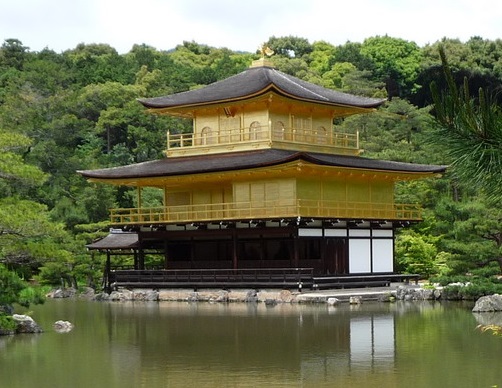.
Introduction
It is not easy to summarise a country as complex and highly developed as Japan in a short presentation. Or rather, it is impossible. Therefore, I will only try to highlight some aspects that seem particularly interesting and important for a proper understanding of the country, especially those that have fascinated me and that I can illustrate with my personal experiences. I will present individual encounters with the country and its people in a loose sequence. Then I invite you to take a walk through some of Japan's fantastically beautiful gardens and parks. This is followed by more detailed descriptions of three topics that have interested me most in Japan and with which I have also dealt academically (exoticism, religion, university reform).
Japanese culture and society are still often misunderstood and misinterpreted. I would therefore like to focus on those aspects that can clarify the reasons for these misunderstandings and contribute to a better understanding of Japan. Even today, the country is considered by many to be enigmatic and mysterious, and it is said that you can never really understand the Japanese. You hear similar things from the Japanese themselves, who like to keep a shield around themselves, or who often just don't like to show their cards, especially when it comes to business. Of course, every country and every person remains a mystery at some point, even your own spouse. Life would be boring if it weren't so. But after my experience in Japan, I can say with conviction that there are no fundamental difficulties in understanding people in Japan and correctly assessing their ways of doing things. This has been confirmed time and time again, and I can illustrate this with a number of examples. It was particularly difficult for me when I was responsible for almost the entire area of my university and had to correctly assess not only the different mentalities, but also the complicated power relations and rivalries that, of course, exist in Japan as elsewhere. I take the fact that I was mostly successful in doing so as proof that, with the necessary sensitivity, it is possible to understand people's behaviour in Japan, and in my experience this is often even easier than in Germany, for example.
I have talked about rivalries and power struggles in order to dispel another prejudice about Japan, namely that Japanese society is so peaceful and harmonious. If Japan is still often portrayed as a land of harmony, and sometimes even as a kind of paradise and ideal country, this can be traced back to ideas that developed in Europe, especially since the middle of the nineteenth century, in connection with exoticism. In this case, cultural pessimism and the rejection of traditional European values gave rise to the idea of a counter-world that was imagined and hoped to be found in distant and remote parts of the world, as in the case of Gauguin, for example. Everything that is disliked in Europe is often turned into its positive opposite and dreamed up in distant countries, especially islands, such as Tahiti or Japan. This schematism can still be found today in some ideas about Japan, which make it a positive counter-image to Europe. There may be points of reference in Japan, but in principle such ideas have nothing to do with Japanese reality. Nevertheless, people still like to contrast peaceful Buddhism with warlike Christianity, Japanese tolerance with Western intolerance, the European culture of conflict with the Japanese striving for harmony. Unfortunately, these exotic images of Japan often distort our view of Japanese culture and society, and thus prevent us from enjoying the many positive experiences and real insights that can be gained in Japan. Personally, I have always found the latter to be immensely enriching, leading also to a deeper understanding of my own culture.
Supposedly you get a culture shock when you go to Japan. I didn't feel that way, but I did experience a kind of culture shock when I returned to Germany for the first time after several years. I hadn't reckoned with the fact that I had changed so much and saw things in a completely different light. The encounter with Japan can be a great challenge, because it questions many things that you have become accustomed to and that you have grown fond of, and because it shows you alternatives that you cannot dismiss so easily, even if you would like to. This is all the more true, of course, if you have already felt uncomfortable in European culture.
No foreigner leaves this amazing land of the sun goddess without singed wings and scars. No one in his right mind leaves without having learned more about himself and his culture than he would like to. [Uwe Schmitt, 1997, my translation]
For some, the only alternative seems to be either to hole up in Japan, preferably in a Japan that comes close to their dreamed-of ideal, like Lafcadio Hearn, or to flee Japan.
But let's get back to the real Japan. It is true that people in Japan are generally particularly friendly and kind, very keen to avoid conflict and sensitive to creating and maintaining pleasant human relationships. Embarrassing or conflictual situations are often avoided with great skill. At the very least, problems and conflicts are kept from leaking out at all costs. Of course, even in Japan the gloves are sometimes off. However, I would rather not talk about my own experiences in this regard here, having been tatamised as I am. On the whole, however, even among sometimes rather rude people, one can observe an often astonishing consideration and sensitivity for the feelings of fellow human beings in Japan, though foreign observers often fail to notice this.
One idea often associated with Japan is that people in Japan feel much more strongly as part of a group, whereas in Europe the emphasis is on the independence of the individual, the single person. This is true if you do not make a complete contradiction out of this difference and, in the case of Japan, talk about collectivism or the total subordination of the individual to the group. The differences are relative, and if you look closely you will see that phenomena similar to those in Japan also exist in Europe, only that they are often not consciously perceived or suppressed because of the emphasis on the development of the independent, self-reliant individual. Unless you've experienced it yourself, it's hard to understand what this attachment to the group means for people in Japan. Basically, they see themselves, or rather feel themselves, first as part of a larger whole, a group in the sense of a living organism, and only then do they see themselves in their particular individual role within that group. The group begins with the family, through the school, the company, etc., to the largest unit, the "people's (national) body" (kokutai), as it was called until 1945, namely the country of Japan as a whole.
So if they generally feel more part of a family, a living community, than we do in Europe, they also feel more integrated into the natural rhythm of nature and life. This is particularly evident when it comes to death, which, despite all the taboos surrounding it, is experienced as a natural part of life and is less repressed or experienced as a shock with traumatic consequences than is often the case in Europe.
The phenomena in Japan covered by the term group can only be properly understood and classified if they are seen in a wider context. This includes the tendency to see things in general not initially as independent phenomena or factors which are then placed in relation to each other, but rather from the outset as part of a whole or integrated into a larger context. It is interesting to see how much the Japanese language, and therefore the Japanese way of thinking, is shaped by this. For example, processes, events and even decisions are seen as if they happened naturally, even if you know that they occurred under pressure from certain people. The ideal politician is not the "doer", but the one who skilfully steers the various currents in the right direction, while remaining in the background.
Other important themes I would like to touch on are the importance of ritual, the peculiarities of Japanese aesthetics, emotionality, Japanese pragmatism and the role of power in Japan.
With regard to religion in Japan, there are many misconceptions to be corrected, but also some amazing things to be discovered. This is covered in detail in a separate section.

